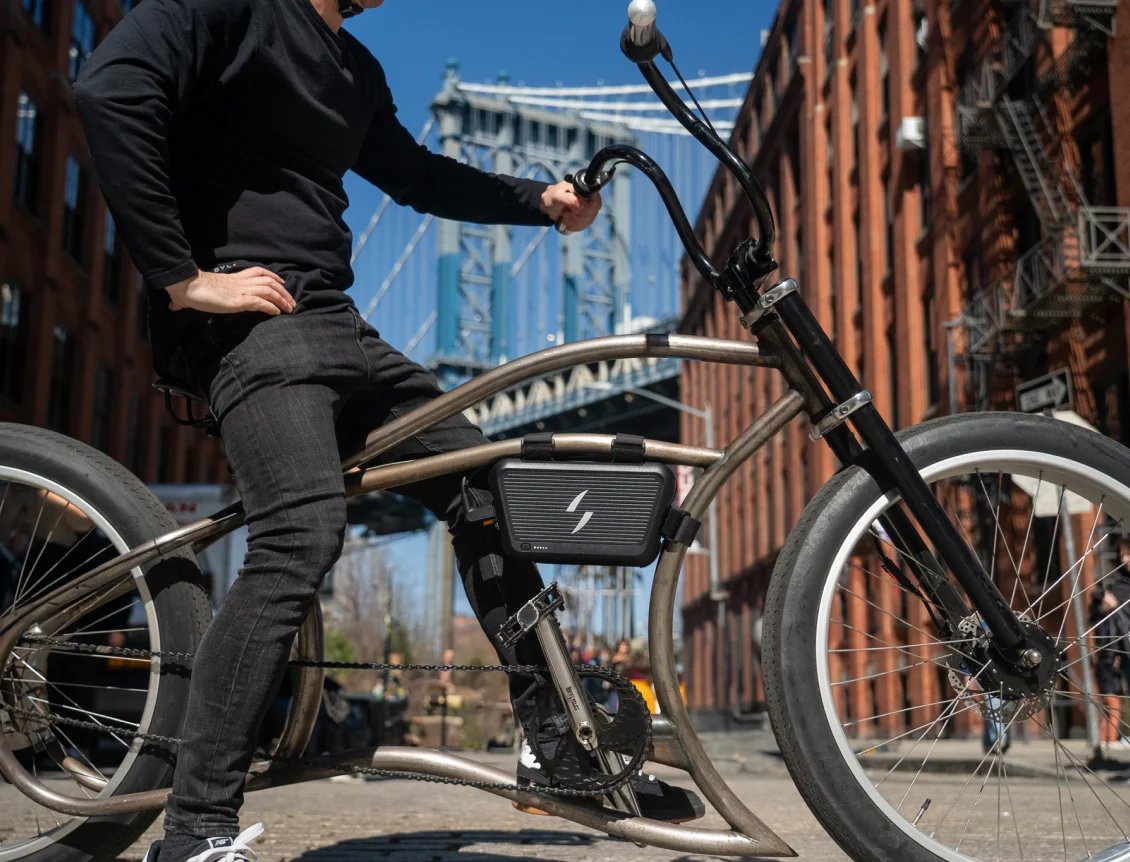How using an indoor bike trainer can improve your ride
There are numerous reasons to use an indoor bike trainer and hundreds of them on the market. A bike trainer is like a bike stand except that using one transforms your bike into a stationary bike. There are three types of indoor bike trainers: stationary trainer (the most common), roller trainer (for professional training) and stationary bikes (like a Peloton). For the purpose of this article, we'll be discussing stationary trainers.
Stationary trainers are solid frame stands for your bike so that you can cycle inside. That's the gist of the equipement. Many of them have a resistance roller tension system so that you can adjust your ride to simulate riding uphill. You might scoff at riding inside with a tension system when you can just head outside, but there are a few reasons why investing in an indoor bike trainer is a good idea.
Train to avoid the weather
Regardless if you ride for leisure, exercise or hardcore competition, the weather can be a problem. Riding in the rain or extreme heat can be dangerous and not worth the trouble sometimes, but you still have that desire to ride. While riding inside doesn't offer the scenery of riding outside, you can binge your favorite show while still clocking your miles. An indoor bike trainer is a great way to beat the heat or any inclement weather.
Strength training
A great use of indoor bike trainers is strength training. Maybe you don't have hills where you live or have been working to tackle the biggest one in the neighborhood. Perhaps you've been training for longer distances. An indoor bike trainer offers resistance training with a tension roller so that you can push harder without going further to build yourself up for the next challenge. I have no hills where I live, so I put the tension at the highest setting and pretend that there's a hill in front of me.
Socially distant cycling
With the pandemic still permeating in some countries (the UK and US at the top of those lists), trails and bike routes have been packed with people seeking some solace in the outdoors. Of course, the most people in any one place, the higher the risk of becoming a statistic, regardless of fresh air. So biking inside with an indoor bike trainer is a good way to avoid the crowds and still get your ride in. You just might need to open a window to let some fresh air in.
For recovery
If you've recently injured yourself, whether on your bike or not, then an indoor trainer can help you get back into riding shape. You don't have to worry as much about balance and you can easily adjust your pace without worrying about your environment causing any issues. It's probably the safest way to ride when recovering from injury.
Longer, shorter rides
Another benefit of an indoor bike trainer is adjusting the time of your ride without having to track mileage or worrying about raw distance. If you have a goal, you can use a mileage tracker on your rear wheel (it tracks rotations and estimates mileage based on cadence and time) or you can just ride until you don't feel like riding any longer. You won't be any further from home than when you started and you'll be that much closer to a nice cool drink from the fridge.
All these things together will only serve to enhance your next ride on the pavement. With an indoor bike trainer, you don't have to lament being stuck inside during a rain storm or a terribly hot day. You can strength train or just leisurely ride in your living room under the air conditioning. Stationary bike trainers are fairly inexpensive as well (good ones can be had for less than $200). And when you are ready to go ride outside, you can unscrew your bike from the stand and hit the road.
Curtis Silver


